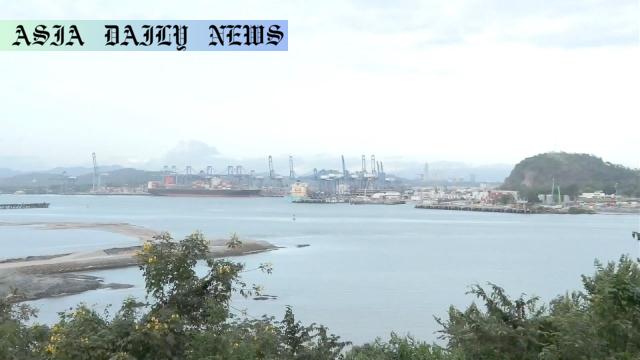Panama Canal: Dispute over transit fee claims deepens.
Key Point 1: Dispute arises between US State Department and Panama Canal Authority over claimed fee waiver for US government vessels.
Key Point 2: Panama Canal Authority denies any modification to current fees, emphasizing readiness for dialogue.
Key Point 3: President Donald Trump critical of China’s alleged interest and Panama’s transit charges.
Key Point 4: US and Panamanian officials engage in defense cooperation talks regarding canal security.

Panama Canal: A Critical Economic and Political Link
The Panama Canal is one of the most significant maritime waterways in the world, enabling vessels to traverse between the Atlantic and Pacific without navigating the lengthy and perilous South American route. Owing to its strategic and economic importance, its administration and policies often become focal points for international diplomacy and economic negotiations. The latest disagreement between the United States and Panama is no exception to this trend.
Fee Dispute: US Claims Versus Panama’s Denial
Recently, the US State Department announced on social media that the Panamanian government had allegedly agreed to waive transit fees for US government vessels using the canal. The department suggested that such a change would save the US government millions of dollars annually, marking it as a win for strengthening US-Panama ties. However, this claim was swiftly denied by the Panama Canal Authority, which issued a statement clarifying that it had not made any changes to its fee structure or access rights. This conflicting narrative has underscored brewing tensions between the two nations.
President Trump’s Stance on the Canal
The controversy gains even more intrigue within the context of former US President Donald Trump’s public stance on the Panama Canal. Trump has repeatedly asserted that Panama’s transit charges are exorbitant and that China has undue influence over the canal’s administration. These assertions have fueled calls for the US to regain control over the canal, sparking debate among policymakers and international analysts alike.
Defense and Diplomatic Dialogues
In parallel to the economic dispute, US Secretary of Defense Pete Hegseth has been engaging with Panama’s Minister of Public Security, Frank Alexis Abrego, to reinforce shared security priorities. According to the US Department of Defense, these talks have led to a reaffirmed commitment toward the security and defense of the canal. Discussions between Secretary of State Marco Rubio and Panamanian President Jose Raul Mulino further illustrate ongoing efforts to balance economic and security concerns.
The Larger Geopolitical Context
The disagreement over transit fees extends beyond bilateral US-Panama relations, encapsulating broader geopolitical influences. The United States, historically the canal’s largest user, views its operational policies as critical to global trade and American strategic interests. Conversely, Panama seeks to assert its sovereign rights while navigating pressures from powerful nations. The implications of this dispute could ripple across international trade routes and partnerships.
The Way Forward
As the US and Panama navigate their differences, maintaining open channels for dialogue will prove essential. The Panama Canal Authority’s willingness to engage in discussions is a promising step toward resolving the dispute. Both nations stand to benefit from preserving effective collaboration, given the canal’s vital role in facilitating global trade and diplomatic relations. Future negotiations may also delve into addressing the perceived Chinese influence to alleviate American concerns.
Commentary
The Strategic Value of the Panama Canal
The Panama Canal remains a cornerstone of global maritime trade and geopolitical strategy. It has drawn significant attention from major nations over decades, and its control continues to symbolize influence and power in international politics. The recent dispute between the US and Panama showcases how instrumental the canal is not only economically but also politically. The United States’ emphasis on fee waivers reflects a broader intention to assert dominance and protect its economic interests.
Conflicting Narratives and Geopolitical Risks
The conflicting statements from the US government and the Panama Canal Authority highlight a classic diplomatic friction that often surfaces in international agreements. Such disputes create a layered dynamic where facts and claims blur, sometimes escalating tensions. Adding fuel to the fire are President Trump’s claims surrounding alleged Chinese control of the canal – an assertion that could push the dispute into the realm of great-power competition rather than a simple bilateral disagreement.
Opportunities for Dialogue
Though the current events are wrapped in controversy, they also highlight an opportunity for enhanced cooperation and dialogue. The willingness of both nations to engage diplomatically is a good sign. Transparent, fact-based conversations about the economic relevance and fee structures of the canal could pave a path forward. At its heart, the Panama Canal represents a shared international interest, and collaborative solutions would benefit all stakeholders in the long run.


